Using Cinema to Promote Communication for Social Change in Rural Africa by Dominique Thaly
The Cinéma Numérique Ambulant (CNA) ( http://www.c-n-a.org) of France uses film to spark community dialogue in three West African countries" Benin, Niger and Mali. CNA works with local communities to screen, in remote rural villages, fiction movies by African filmmakers. Most of the movies are translated into local languages from French. CFSC Consortium consultant Dominique Thaly manages the CNA sections in Niamey, Niger.
Using Cinema to Promote Communication for Social Change in Rural Africa
Movies are rarely seen in rural Africa, so the screenings introduce many rural villagers to cinema. At each show, the CNA screens a movie that prompts dialogue about issues such as HIV-AIDS, girls' education, child marriage, etc.
Ideally, each CNA project includes 100 screenings over a five-month period (20 per month). Experience shows that when the CNA visits a village repeatedly over the five-month period, people look forward to the screenings and the events are well-attended by people from the local village and also from surrounding villages.
CNA Sections
The CNA has sections or teams"two each in Mali, Niger and Benin. Each section is autonomous and comprises three people: a woman facilitator, who is usually responsible for the section, a technician and a driver. Each person has received training and can back up the others.
Before starting a campaign, the CNA arrange dialogue sessions with village leaders (chief and his councillors) to discuss topics to be addressed at the screenings.
A CNA screening has four parts: the introduction, including music and video clips; a movie about issues important to the villagers; a CFSC dialogue in which villagers discuss such topics as nutrition, access to health care services, payment for health care services, HIV-AIDS prevention, education for girls, child marriage, immunization, especially for polio, malaria and birth registration; and, after the discussion, the featured fiction film.
The CNA in the Republic of Niger
The Republic of Niger is a landlocked Sahelian country. It has a population of some 11.5 million people and a population growth rate of 2.63 percent. Niger ranked last on the 2005 Human Development Index list. That year was a particularly harsh one for Niger, as it faced a severe hunger crisis.
The CNA was organised in Niger in July 2003. The two Niger CNA teams partner with the European Union, Plan International, UNICEF, the French Embassy and UNFPA. Two projects illustrate communication for social change at work: the UNICEF Project and the Initiative pour la Santé Sexuelle et Reproductive des Jeunes project.
The UNICEF Project
This UNICEF-funded project took place between August 20 and September 25, 2005, at end-of-the-rainy-season festivals and in villages in nomadic areas of the Agadez region and Ingall, in northeast Niger. The CNA team hosted 25 screenings.
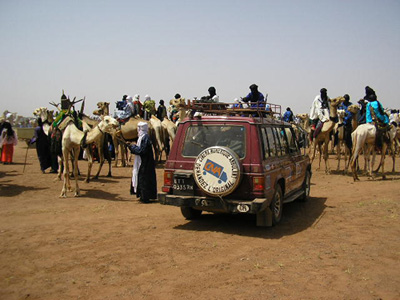 |
The CNA team travelled to the screening locations in a vehicle loaded with generator, screen, sound system, DVD and VHS players and a video projector. |
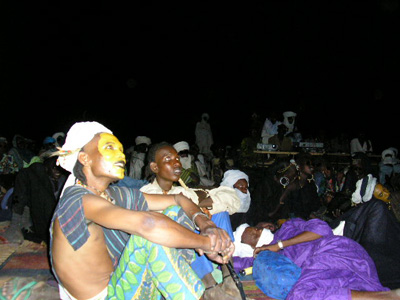 |
In all, 32,100 people attended the screenings:13,840 men, 10,620 women and 8,240 children. |
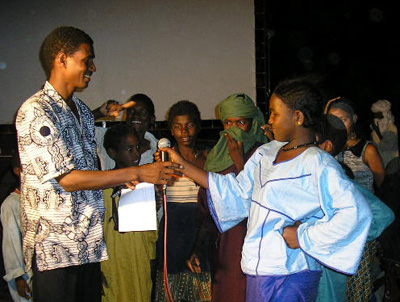 |
Following the movie, the CNA team and local facilitators led interactive discussions with the audience members. |
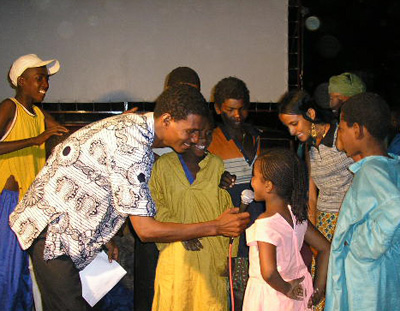 |
Many came to the mike to express themselves and to make statements. |
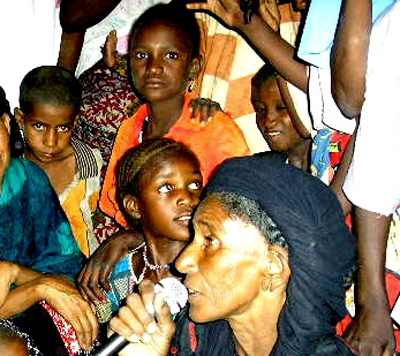 |
One said, "School is good for girls and opens up their eyes. A girl who goes to school is afraid of nobody, she can go anywhere and she can talk in front of men." Afterwards the feature film was shown and the CNA team distributed mosquito nets, Children were immunized and births were registered by a local taskforce. |
The Initiative pour la Santé Sexuelle et Reproductive des Jeunes project
Initiative pour la Santé Sexuelle et Reproductive des Jeunes is a youth project initiated in Niger by The United Nations Population Fund (UNFPA), an organisation working to ensure universal access to reproductive health, including family planning and sexual health.
The Initiative asked CNA to screen movies in remote Nigerien villages in order to prompt discussion about HIV AIDS.
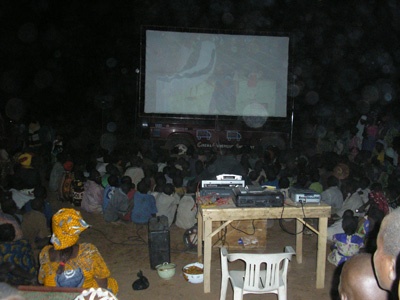 |
Between November 7 and December 27, 2005, the CNA team screened movies in Nigerien villages near Loga and Mirriah, east of Niamey. |
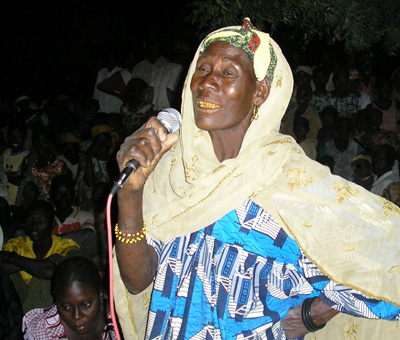 |
More than 60,000 people attended the events, including 7,900 children and 24,050 youths. |
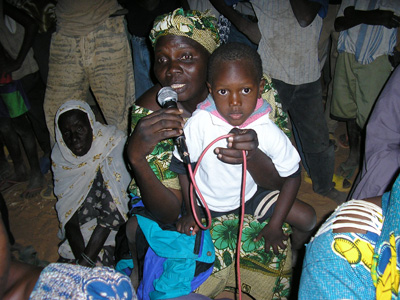 |
Villagers took the microphone to speak on topics such as HIV/AIDS. |
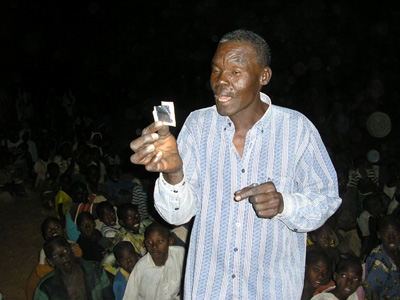 |
One villager cautioned, "If you don't abstain from sex while travelling, you'd better carry along your shroud, as death will accompany you." |
Click here to return to MAZI 6